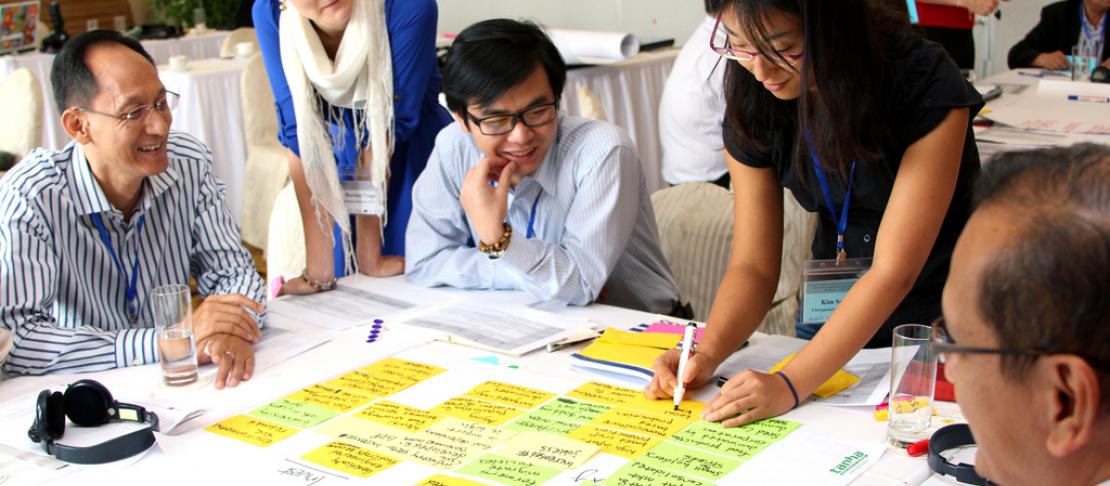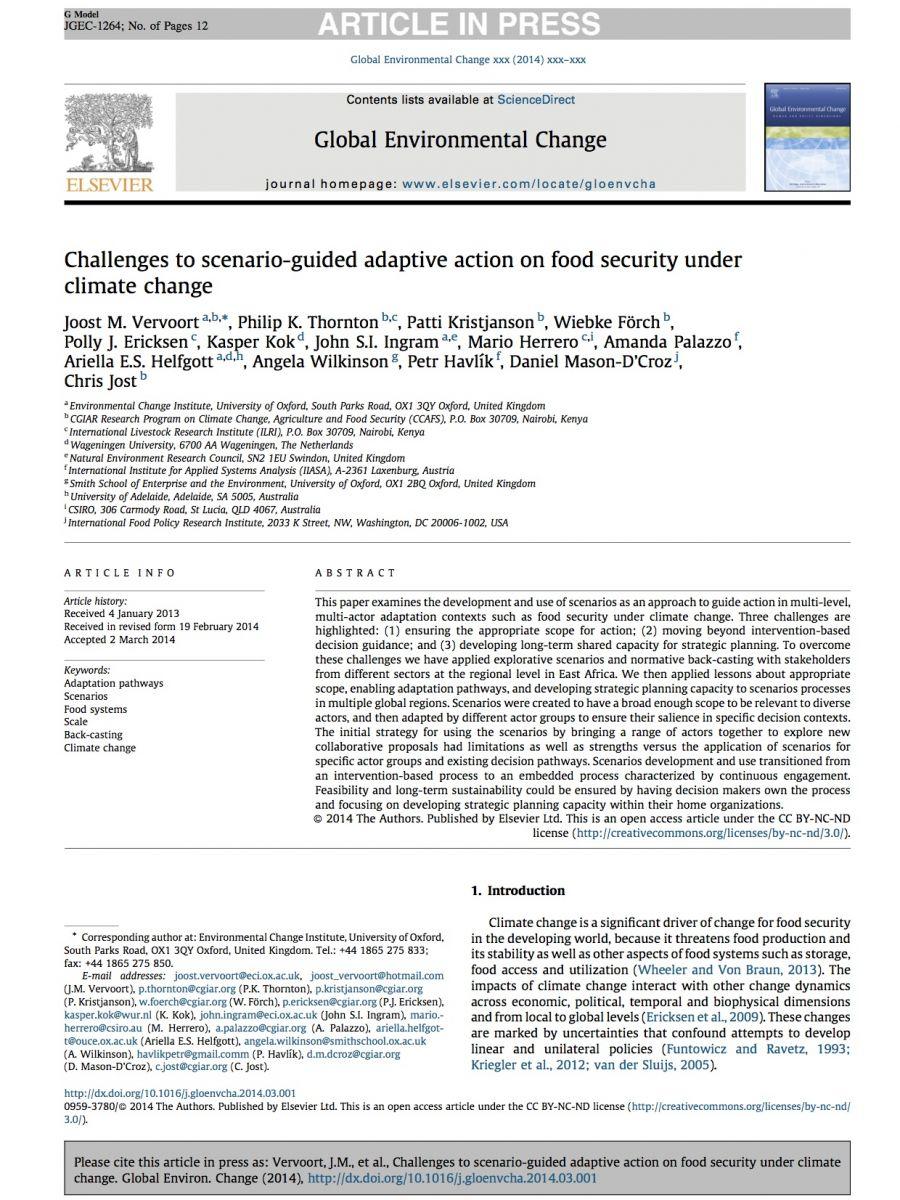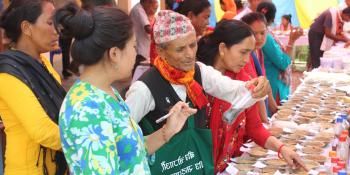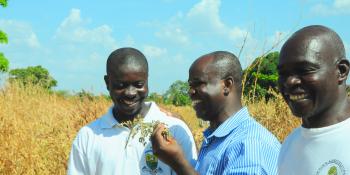A step in the right direction: helping decision-makers ensure a food secure future

A new article provides valuable lessons that can be helpful in attempts to better connect food security science with policy-creation.
As decision-makers, leaders and politicians all work towards a more food secure, sustainable future, they are sometimes faced with making decisions in a world where information and actions are fragmented. In the meantime, the challenges they are facing to ensure sustainable food security, are systemic and need system-wide action.
Researchers also have an obligation to look at how they work and interact with decision-makers asking themselves: "are we going about our work to influence policy making the right way?" Researchers can, and are already, playing a major part in supporting leaders to create new policies that can help improve food security.
A new paper, Challenges to scenario-guided adaptive action on food security under  climate change, outlines some of the challenges and required steps for researchers to better engage with decision-makers to ensure flexible policies that take uncertainty into consideration.
climate change, outlines some of the challenges and required steps for researchers to better engage with decision-makers to ensure flexible policies that take uncertainty into consideration.
In order to better influence and support decisions made about a changing and uncertain future by leading profiles, the CGIAR Research Program on Climate Change, Agriculture and Food Security (CCAFS) has been using scenarios.
Scenarios are narratives describing multiple contrasting ways in which the future could develop. Future explorative scenarios can be described in words, numbers or images. CCAFS Scenarios team has been using these pathways as a tool for science-policy dialogue.
The scenarios are based directly on the ideas of decision-makers working together with researchers, and then further explored through simulation modelling about socio-economic and technological changes and climate impacts. The process recognizes and explores uncertainty and complexity in the decision-makers’ context rather than limiting and simplifying that context with the pretence of providing a single forecast when such prediction is not possible.
Learn more about how the Scenarios team work: Visions for the future: scenarios help convert talk into plans
Based on case studies in South- and Southeast Asia, East- and West Africa and Latin America, the researchers in this article highlight some lessons that can be valuable for any attempts to connect science and policy.
Lessons learned:
First of all, it is important that the scope of a science-policy process is adaptable enough to connect strongly with the concerns of the policy makers. The scenarios are also flexible enough to be adapted by new user groups.
Secondly, it is important to build long-term, close partnerships between scientists and decision-makers and establish strong networks this way.
Finally, rather than having external researchers helicoptering in with advice, decision-makers want to develop their own institutional capacity to plan strategically in the face of uncertain futures. When decision-makers are really the process owners and work closely with researchers on a day-to-day, scenarios and other tools for science-guided policy processes become much more powerful.
Dowload the article to learn more: Challenges to scenario-guided adaptive action on food security under climate change, Vervoort J, Thornton PK, Kristjanson P, Förch W, Ericksen P, Kok K, Ingram JSI, Herrero M, Palazzo A, Helfgott A, Wilkinson A, Havlik P, Mason-D’Croz D, Jost C. 2014. Challenges to scenario-guided adaptive action on food security under climate change. Global Environmental Change.
Learn more about our work on Future Scenarios
Joost Vervoort is leading the CCAFS work on Scenarios. Cecilia Schubert is a Communications Officer at CCAFS.



